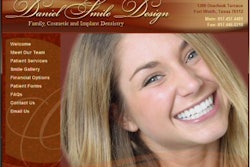
LONDON (Reuters), Jun 5 - As more and more dentists go private and the cost of treatment soars, a growing number of consumers are insuring their pearly whites.
A standard filling can cost anything into three figures in many British surgeries and even a routine checkup on the NHS can dent your bank balance.
The mounting costs are leading to a growing number of people to neglect their oral care: almost a third of 1,000 adults surveyed earlier this year say they have not visited the dentist in the past two years.
A fifth has not had dental work that was recommended carried out due to the costs involved, according to the poll commissioned by dental firm Dentale, and an estimated 1.29 million people have had dental treatment undertaken outside Britain because of the lower costs involved.
Indeed, dental tourism is witnessing a boom similar to that experienced by overseas cosmetic surgery a few years ago. This can prove economical for those who need a lot of dental work, even after travel costs are taken into account.
But for those looking to cut the cost of more routine treatment closer to home, insurance is rising in popularity.
"NHS funding is going south in a big way -- the number of NHS dentists is dropping and access to dental work from the NHS is diminishing all the time," says Mike Izzard, chairman of the Association of Medical Insurance Intermediaries (AMII).
"In a way, we really shouldn't call it 'insurance' but 'assurance,' because it's covering against the probable.
"Everyone will use it, it just depends how much."
So, what are the options?
Stand-alone insurance
A number of firms offer specific dental insurance that contributes toward routine treatment, dental emergencies, and serious dental problems -- whether you choose to go privately or via the NHS.
Companies in this market include Dencover (underwritten by Cardif Pinnacle), Western Provident Association (WPA), and Tesco Personal Finance, which branched into the dental cover market last year.
Premiums are based on age and can vary widely, ranging from around 7 pounds per month to almost 20 pounds, according to consumer group Which?
Benefits, too, vary from one plan to another, but in general the more you pay, the more your insurer will pay out.
Claims can generally not be made until the policy has been held for three to six months. After that, policies will pay out for treatment at whichever dentist you choose to visit.
Patients typically have to stump up the cost then reclaim the money back from their insurer.
The most basic -- and cheapest -- policies tend to cover emergency and nonemergency treatment, but not regular checkups.
Others have more generous benefits, but most policies set maximum payouts.
Some will refund a percentage of the cost of general dental treatment, including routine work -- for example 75% of the total cost -- up to an annual cap, or pay up to a maximum amount for any specified treatment.
General treatment typically includes crowns, root canal work, bridges, dentures, and other laboratory work. Cosmetic work and orthodontic treatment, such as braces and implants, are generally excluded.
Capitation schemes
The alternative to taking out a dental insurance plan is a capitation scheme, the largest provider of which is Denplan.
These allow you to pay on a monthly basis -- spreading the cost of treatment -- instead of settling treatment bills as and when they arise and submitting a claim.
The premium depends on the condition of your teeth and surgery running costs, and is determined after you have consulted a dentist that has signed up to such a scheme.
Premiums are paid regardless of how many visits you make to the dentist or what treatment you receive.
Basic plans cover general maintenance, including checkups, and emergency treatment. More comprehensive plans can also cover fillings, x-rays, and extractions.
Again, check exclusions. Some schemes do not cover the cost of laboratory work like crowns, bridges, or cosmetic dentistry.
Izzard believes such plans are declining in popularity: "They seem to be rising in price, while insurance contract premiums -- because of competitive pressures -- are staying quite reasonable."
Cash plans
Most standard private medical insurance policies exclude dental services alongside organ transplants, HIV/AIDS, gender reassignment, and infertility treatment, according to the Association of British Insurers.
But if you want a plan that combines dental with some form of health cover, a "cash" plan could be suitable.
Providers, such as HSA, HealthSure, Medicash, and WPA, offer part-cover for dental treatment -- typically between 50% and 75% -- as well as other benefits, such as help with optical treatment and health screening.
Other benefits can include in-patient admission, specialist consultations, and alternative therapies, such as physiotherapy, chiropractics, acupuncture, and reflexology.
By Jennifer Hill, Personal Finance Correspondent
Last Updated: 2008-06-05 9:44:12 -0400 (Reuters Health)
Copyright © 2008 Reuters Limited. All rights reserved. Republication or redistribution of Reuters content, including by framing or similar means, is expressly prohibited without the prior written consent of Reuters. Reuters shall not be liable for any errors or delays in the content, or for any actions taken in reliance thereon. Reuters and the Reuters sphere logo are registered trademarks and trademarks of the Reuters group of companies around the world.



















